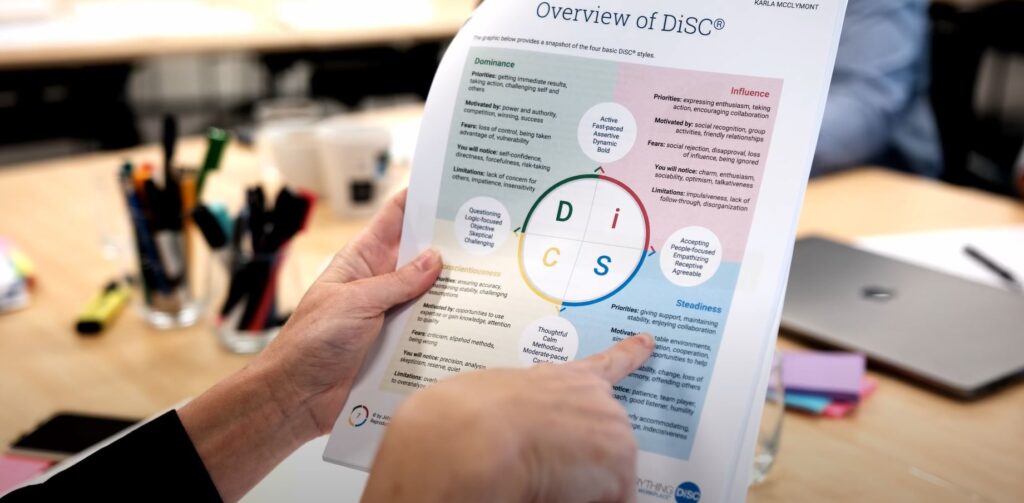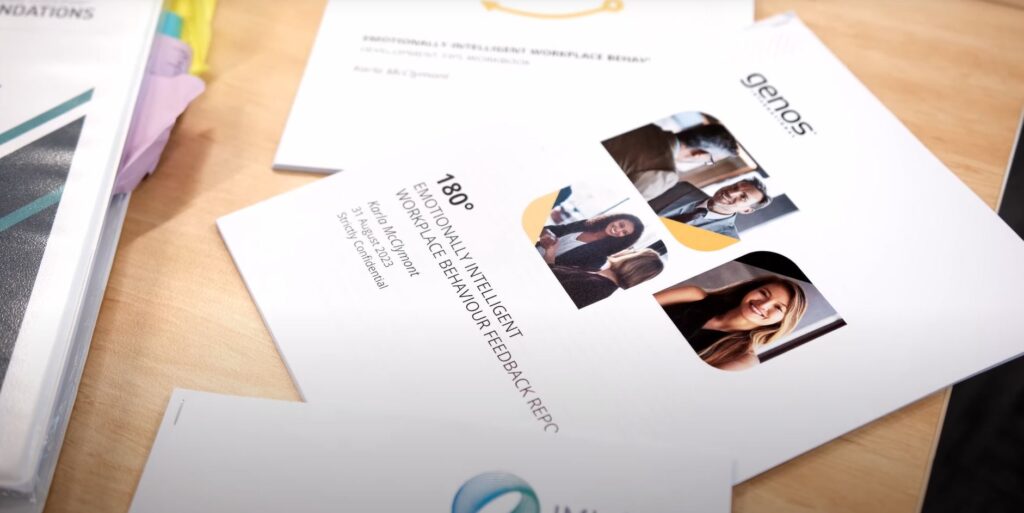
Harness the Power of People Analytics Tools
People analytic tools are designed to provide objective data and actionable insights into our professional behaviours, competencies and leadership styles.
Underpinning the important role self-awareness plays in leadership development, we utilise a broad range of diagnostic tools as an integral part of our popular courses.
The insights gained from these tools help to individualise the journey, highlighting strengths and development areas and greatly assists with improving relationships in the workplace.
The diagnostics listed below can all be purchased individually, for groups and combined with coaching, debriefs and training sessions as required.
What makes these tools unique are the fact that they are specifically aligned to the competency framework underpinning all our leadership courses!

IML 360 Report
Understanding the gap between where you see yourself and how others around you may see you – is often a shock to some.
Bridging that gap is part of your development and leadership journey and is the perfect steppingstone to full self-awareness and enlightenment.
360 Feedback Surveys are completed by participants, their managers and anonymous observers and provide constructive feedback on leadership styles, skills and competency gaps via multiple choice leadership competencies and open-ended questions.
Identify gaps and improve organisational growth
Demonstrate improvement areas to your team members that might be limiting their upward career path or causing conflict within the team.
Establish a benchmark to evaluate performance within groups
Provide a powerful benchmark to establish performance across the entire organisation and feed into the organisation’s performance review process.
Increase team trust and honesty
Survey results provide an honest assessment of working styles and leadership skills; comparing scores with ratings from their managers, peers, and direct reports.

DISC Behavioural Profiling
Often challenging work situations arise from misunderstandings of the fact that ‘different’ does not always mean ‘difficult’. Understand the why and the how that people approach situations, can help ease tension and difficulty with workplace behaviours.
Understanding yourself and having great self-awareness means that you approach situations with an empathy and potential understanding for how others may feel in certain situations – this is seen as an essential leadership quality.
By understanding our differences, we can overcome conflict that often derails work situations.
Become more self-aware
Managers and individuals can become aware of their own behavioural style in order to work and communicate better with those around them.
Increase Critical Conversations
By learning about yourself and other peer personalities, teams can better communicate leading to improved productivity and effectiveness.
Improve team collaboration and culture
Managers can understand teams and use the results to allocate relevant tasks, better communicate objectives and conduct difficult conversations in the right way to drive efficiency.

Genos Emotional Intelligence
Often the people who think they are extremely emotionally intelligent are the ones who may not be working effectively with others or causing issues with others in the workplace.
Leadership is a journey into the Centre of oneself. Developing a better understanding of your emotional intelligence will allow for full enlightenment and improved behaviour and results in the workplace.
Bring self-awareness to working behaviours
Managers, leaders and staff become aware of their EI, gaining insight on the level of importance vs. the level of demonstration of a particular EI competency in the workplace.
Better team communication
Lay the foundation of healthy workplace culture with observer feedback. Get an understanding of your strengths and development areas, and the impact they have on your team.
Gain expert support
A leadership specialist will utilise your results from the survey to set smart, actionable goals to improve your soft skills and emotional intelligence.


